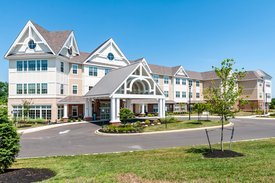
501 Mattison Ave, Ambler, PA 19002
5.0
(3 reviews)
My mother will be moving into The 501 at Mattison Estate. She needs memory care and this is the first memory care that I found where it really provides an environment where one would feel as though they're not in a hospital ward or a nursing home, bu...
Pricing not available














